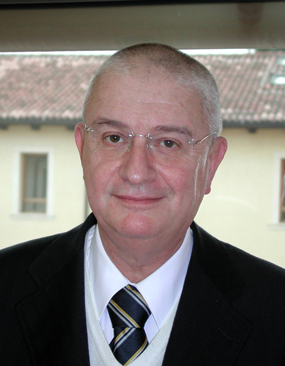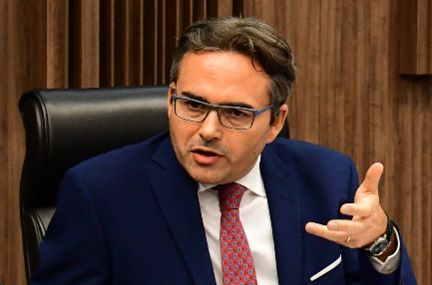Studying at the University of Verona
Here you can find information on the organisational aspects of the Programme, lecture timetables, learning activities and useful contact details for your time at the University, from enrolment to graduation.
Academic calendar
The academic calendar shows the deadlines and scheduled events that are relevant to students, teaching and technical-administrative staff of the University. Public holidays and University closures are also indicated. The academic year normally begins on 1 October each year and ends on 30 September of the following year.
Course calendar
The Academic Calendar sets out the degree programme lecture and exam timetables, as well as the relevant university closure dates..
| Period | From | To |
|---|---|---|
| 1° Periodo di lezioni | Oct 1, 2014 | Dec 16, 2014 |
| Periodo riservato ad eventuali recuperi di lezioni - dicembre 2014 | Dec 17, 2014 | Dec 18, 2014 |
| 2° Periodo di lezioni - febbraio/marzo 2015 | Feb 10, 2015 | Mar 30, 2015 |
| 2° Periodo di lezioni - aprile/maggio 2015 | Apr 8, 2015 | May 5, 2015 |
| Periodo riservato ad eventuali recuperi di lezioni - maggio 2015 | May 6, 2015 | May 8, 2015 |
| Session | From | To |
|---|---|---|
| Sessione straordinaria 14/15 - studenti f.c. - dicembre 2014 | Dec 19, 2014 | Dec 23, 2014 |
| 1° appello - Sessione invernale 14/15 | Jan 8, 2015 | Jan 14, 2015 |
| 2° appello - Sessione invernale 14/15 | Feb 2, 2015 | Feb 7, 2015 |
| Sessione straordinaria 14/15 - studenti f.c. - marzo/aprile 2015 | Mar 31, 2015 | Apr 2, 2015 |
| 1° appello - Sessione estiva 14/15 | May 11, 2015 | May 16, 2015 |
| 2° appello - Sessione estiva 14/15 | Jun 8, 2015 | Jun 13, 2015 |
| 3° appello - Sessione estiva 14/15 | Jul 6, 2015 | Jul 11, 2015 |
| 1° appello - Sessione autunnale 14/15 | Aug 31, 2015 | Sep 5, 2015 |
| 2° appello - Sessione autunnale 14/15 | Sep 24, 2015 | Sep 30, 2015 |
| Session | From | To |
|---|---|---|
| Termine presentazione tesi di laurea - ottobre 2014 | Sep 25, 2014 | Sep 25, 2014 |
| Sessione autunnale 14/15 | Oct 20, 2014 | Oct 21, 2014 |
| Termine presentazione tesi di laurea - gennaio 2015 | Jan 12, 2015 | Jan 12, 2015 |
| Sessione invernale 14/15 | Feb 9, 2015 | Feb 9, 2015 |
| Termine presentazione tesi di laurea - marzo 2015 | Feb 13, 2015 | Feb 13, 2015 |
| Sessione invernale 14/15 - marzo 2015 | Mar 17, 2015 | Mar 19, 2015 |
| Termine presentazione tesi di laurea - luglio 2015 | Jun 8, 2015 | Jun 8, 2015 |
| Sessione estiva 14/15 | Jul 2, 2015 | Jul 3, 2015 |
| Period | From | To |
|---|---|---|
| Festa di Ognissanti | Nov 1, 2014 | Nov 1, 2014 |
| Festa dell'Immacolata Concezione | Dec 8, 2014 | Dec 8, 2014 |
| Vacanze di Natale | Dec 24, 2014 | Jan 6, 2015 |
| Vacanze di Pasqua | Apr 3, 2015 | Apr 7, 2015 |
| Festa della Liberazione | Apr 25, 2015 | Apr 25, 2015 |
| Festa dei Lavoratori | May 1, 2015 | May 1, 2015 |
| Festa del S. Patrono S. Zeno | May 21, 2015 | May 21, 2015 |
| Festa della Repubblica | Jun 2, 2015 | Jun 2, 2015 |
Exam calendar
Exam dates and rounds are managed by the relevant Law Teaching and Student Services Unit.
To view all the exam sessions available, please use the Exam dashboard on ESSE3.
If you forgot your login details or have problems logging in, please contact the relevant IT HelpDesk, or check the login details recovery web page.
Academic staff
 giovanni.alberti@univr.it
giovanni.alberti@univr.it
 mariacaterina.baruffi@univr.it
mariacaterina.baruffi@univr.it

Dalla Massara Tommaso
 tommaso.dallamassara@univr.it
tommaso.dallamassara@univr.it
 +39 045 8028810
+39 045 8028810
 roberto.flor@univr.it
roberto.flor@univr.it
 rita.maggi@univr.it
rita.maggi@univr.it

Manzoni Elena
 elena.manzoni@univr.it
elena.manzoni@univr.it
 8783
8783

Patrono Paolo
 paolo.patrono@univr.it
paolo.patrono@univr.it
 +39 045 8028813
+39 045 8028813
 lorenzo.salvatore@univr.it
lorenzo.salvatore@univr.it
 marcello.stella@univr.it
marcello.stella@univr.it
Strano Silvana
 silvana.stranoligato@univr.it
silvana.stranoligato@univr.it
 +39 045 8028856
+39 045 8028856
 claudio.tomazzoli@univr.it
claudio.tomazzoli@univr.it
Study Plan
The Study Plan includes all modules, teaching and learning activities that each student will need to undertake during their time at the University.
Please select your Study Plan based on your enrollment year.
1° Year
| Modules | Credits | TAF | SSD |
|---|
History of Medieval and Modern Law
Principles of economics
Roman Law Institutions
2° Year activated in the A.Y. 2015/2016
| Modules | Credits | TAF | SSD |
|---|
3° Year activated in the A.Y. 2016/2017
| Modules | Credits | TAF | SSD |
|---|
Legal terminology in a foreign language4° Year activated in the A.Y. 2017/2018
| Modules | Credits | TAF | SSD |
|---|
5° Year activated in the A.Y. 2018/2019
| Modules | Credits | TAF | SSD |
|---|
5 disciplines at choice| Modules | Credits | TAF | SSD |
|---|
History of Medieval and Modern Law
Principles of economics
Roman Law Institutions
| Modules | Credits | TAF | SSD |
|---|
| Modules | Credits | TAF | SSD |
|---|
Legal terminology in a foreign language| Modules | Credits | TAF | SSD |
|---|
| Modules | Credits | TAF | SSD |
|---|
5 disciplines at choiceLegend | Type of training activity (TTA)
TAF (Type of Educational Activity) All courses and activities are classified into different types of educational activities, indicated by a letter.
Type D and Type F activities
Modules not yet included
Constitutional law of Journalism (2018/2019)
Teaching code
4S000016
Teacher
Coordinator
Credits
6
Language
Italian
Scientific Disciplinary Sector (SSD)
IUS/08 - CONSTITUTIONAL LAW
Period
2° periodo di lezioni - aprile/maggio 2019, 2° periodo di lezioni - febbraio/aprile 2019
Learning outcomes
The course analyzes the Constitutional Law of Information as dissemination of news and reviews performed by the modern agora and the journalism as essential freedom for constitutional democracy.
The course focuses on the Freedom of the press as fundamental Freedom guaranteed by the Constitution. As such, courts and legislative bodies have been hesitant to impinge on that freedom. In fact, the course analyzes the Freedom of Information Act and the relationship between economic freedom and journalism.
The course will examine the journalism and the multiplication of influences of media in contemporary society and the latest technological developments, especially the Internet developments.
Program
Freedom of information and political system.
Information and constitutional democracy.
The sources of media law.
The constitutional Principles.
The Association of Journalists.
The limits of journalism.
The pluralism: internal and external.
The citizen Journalism.
The multifaced nature of online Journalism.
The public service Broadcasting between National and European Law.
| Author | Title | Publishing house | Year | ISBN | Notes |
|---|---|---|---|---|---|
| Daniele Butturini | L'informazione giornalistica tra libertà, potere e servizio (Edizione 1) | Filodiritto | 2018 | 978-88-95922-96-6 | |
| M. PEDRAZZA GORLERO | Saggi per un corso di diritto costituzionale dell’informazione giornalistica | Cedam - Padova | 2006 |
Examination Methods
Bibliography
Students that will attend the lectures must study:
1) lectures notes.
2) D. BUTTURINI, L’informazione giornalistica tra libertà, potere e servizio, Filodiritto, Bologna, 2017, study a chapter
Students that will not attend the lectures must study
M. PEDRAZZA GORLERO, Saggi per un corso di diritto costituzionale dell’informazione giornalistica, CEDAM, Padova, 2006.
D. BUTTURINI, L’informazione giornalistica tra libertà, potere e servizio, Filodiritto, Bologna, 2017, Chapters n. 1, 2, 4.
For students not attending the course, there will be an oral examination; for students attending the course, there will be a written test.
Goals of the examination:
The oral test consists of a discussion aimed at verifying:
- the knowledge of the exam program topics
- the depth and breadth of the acquired knowledge;
- the property of language;
- the ability to connect systematically knowledge;
- analytical and argumentative ability
The final evaluation is expressed in thirtieth.
ERASMUS students are invited to to contact Daniele Butturini (daniele.butturini@univr.it) at the beginning of the course in order to set teaching methods and assessment tests.
Teaching materials e documents
-
 programma e testi consigliati (ita)
(msword, it, 25 KB, 14/09/18)
programma e testi consigliati (ita)
(msword, it, 25 KB, 14/09/18)
Career prospects
Module/Programme news
News for students
There you will find information, resources and services useful during your time at the University (Student’s exam record, your study plan on ESSE3, Distance Learning courses, university email account, office forms, administrative procedures, etc.). You can log into MyUnivr with your GIA login details: only in this way will you be able to receive notification of all the notices from your teachers and your secretariat via email and also via the Univr app.
Language skills
Graduation
Internships
Internships are aimed at enabling students to gain direct knowledge of the world of work and to acquire specific professional skills.
Internships are carried out under the responsibility of an individual lecturer, and can be carried out in professional firms, public administration bodies and companies recognised by the University of Verona.
Any CFU credits gained by doing internships will be recognised and recorded by the University in accordance with the relevant University regulations in force (Regolamento d’Ateneo per il riconoscimento dei crediti maturati negli stage universitari).
For further information on internships, please go to: https://www.univr.it/it/i-nostri-servizi/stage-e-tirocini.
Student mentoring
Dissertation
Gestione carriere
Student login and resources
Modalità e sedi di frequenza
La frequenza non è obbligatoria.
Maggiori dettagli in merito all'obbligo di frequenza vengono riportati nel Regolamento del corso di studio disponibile alla voce Regolamenti nel menu Il Corso. Anche se il regolamento non prevede un obbligo specifico, verifica le indicazioni previste dal singolo docente per ciascun insegnamento o per eventuali laboratori e/o tirocinio.
È consentita l'iscrizione a tempo parziale. Per saperne di più consulta la pagina Possibilità di iscrizione Part time.
La sede di svolgimento delle lezioni e degli esami è il Palazzo e aule didattiche di giurisprudenza











































